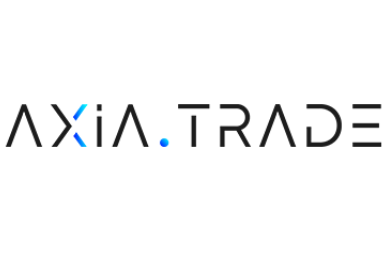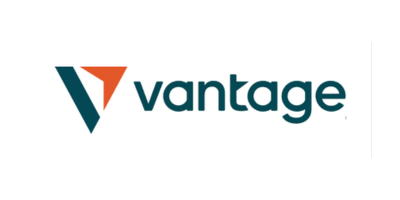CySEC - Cyprus Securities and Exchange Commission

- Website: http://www.cysec.gov.cy/
- Founded: 2000
- Operated by: Government
- License Type: A
- Country: Cyprus
- Hotline: +357 22506600
- Email: chairman@cysec.gov.cy
Who is the CySEC?
The Cyprus Securities and Exchange Commission (CySEC) is the financial regulatory authority of Cyprus, established in 2001.
After Cyprus joined the European Union in 2004, CySEC became subject to the EU’s MiFID framework, aligning its financial regulations with European standards. With favorable tax policies and a business-friendly environment, Cyprus soon became one of the most attractive destinations in Europe for setting up forex brokerages.
However, CySEC’s reputation has been mixed. Among retail traders, opinions are often divided—some value its oversight, while others remain skeptical. The rapid surge in forex companies led to widespread scams and misconduct, while CySEC was frequently criticized for imposing only light penalties—or none at all—even for serious violations, in an effort to retain investment. This leniency ultimately damaged CySEC’s credibility as a strict and reliable regulator.
How does the CySEC regulate a forex broker?
1. Safety of Client Funds
CySEC requires CIFs/forex brokers to keep client funds in segregated accounts. Upon receiving client funds, brokers must promptly deposit them into one or more accounts held with one of the following entities:
-
The central bank
-
A credit institution as defined in Article 2(1) of the Business of Credit Institutions Law
-
A bank authorized in a third country
-
A qualifying money market fund
2. Initial Capital Requirements for Forex Brokers
-
Minimum initial share capital: €200,000
-
Minimum operating capital: €750,000
3. Reporting Obligations for Forex Brokers
Cyprus forex brokers are required to submit the following to CySEC:
-
Transaction reports
-
Audit reports
-
Client funds reports
-
Anti-money laundering (AML) reports
How to check a broker is CySEC-regulated or not?
Generally speaking, CySEC-regulated broker profile will be found at the CIF REGULATED ENTITIES LIST page on CySEC website. Try to find it and check if it will match the info from the broker website.
The detailed steps are as follow:
1. Find the licensed/reference no.(preferred) or name of the forex broker, which you can get from the broker’s website;
2. Enter the no. or name into the search bar on https://www.cysec.gov.cy/en-GB/entities/investment-firms/cypriot/ ;

3. And you’ll get the broker’s contents on CySEC website. At this time you need to check if the broker has the authorization to provide ‘9 – Financial contracts for differences’ under ‘Investment Services’ or ‘Foreign exchange services where these are connected to the provision of investment services’ under ‘Ancillary Services’;

4. If all the above steps have been done, don’t forget to check the most important information: check if the firm details published on CySEC website matches the ones you’ll go to trade with, especially the website and email etc. If no, please keep away the broker because it’s probably an unauthorized firm and your money will fall in danger.

How to solve disputes with a CySEC-regulated broker?
Please kindly note that the Cyprus Securities and Exchange Commission (the ‘CySEC’) does not have restitution powers and therefore does not investigate individual complaints. However all complaints submitted to the CySEC are taken into consideration by the CySEC in the performance of its supervisory mandate.
If you are unhappy with a financial product or service provided to you by a Cyprus Investment Firm (a ‘CIF’, including the forex broker), follow the following three steps for making a complaint.
Step 1: Contact the CIF directly
If you have a complaint, it is best to first ask the CIF involved to put things right.
The CIF will give you a unique reference number. This unique number reference will be used for all future communication you will have with the Financial Ombudsman and/or with CySEC regarding your complaint.
CIF’s are required to respond in writing within 5 days just to let you know they have received your complaint.
CIF’s are also required to respond to your complaint in writing within 2 months, telling you whether the complaint has been successfully resolved or why they need more time to look into it (within maximum 3 months from the day of the complaint).
Step 2: Contact the Financial Ombudsman
If you are not satisfied with the firm’s response, they rejected your complaint or you do not have answer from them within 3 months, it is recommended that you check with the office of the Financial Ombudsman in case you are eligible to file a complaint with them and seek mediation for possible compensation.
The Financial Ombudsman is an independent service for settling disputes between CIF’s and their clients.
It is important to contact the Financial Ombudsman within 4 months of receiving a final response from CIF otherwise the Financial Ombudsman may not be able to deal with your complaint.
The Financial Ombudsman website can be accessed via: http://www.financialombudsman.gov.cy
Step 3: Take the matter to court
If you do not want to accept a decision taken by the Financial Ombudsman as a last resort you may be able to take your case to court. You would usually start civil action in the District Court.Note:
Furthermore, if you want to inform the CySEC about a complaint submitted to a CIF, please click one of the following forms.
COMPLAINTS WITH REF NO. : https://www.cysec.gov.cy/en-GB/complaints/how-to-complain/ref/
COMPLAINTS WITHOUT REF NO.: https://www.cysec.gov.cy/en-GB/complaints/how-to-complain/no-ref/





























